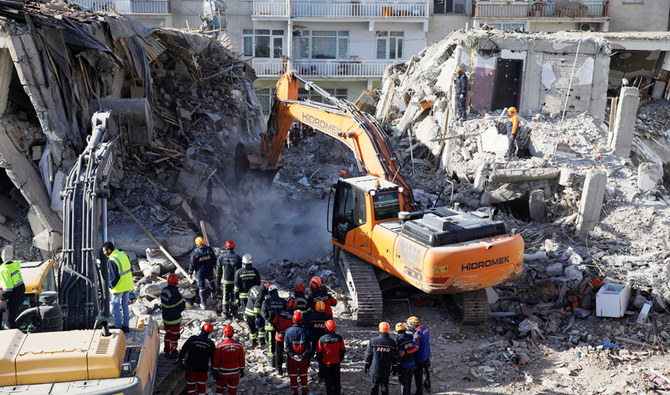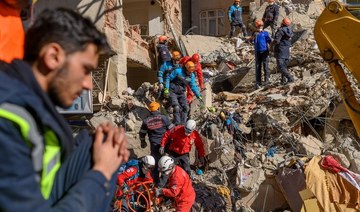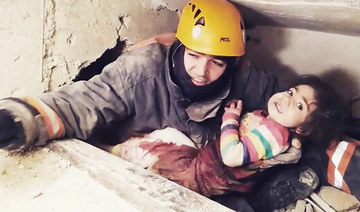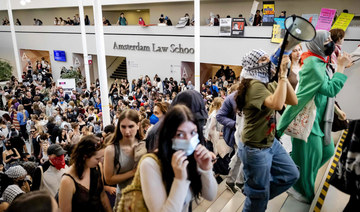JEDDAH: Rescue operations continue amidst mountains of debris in eastern Turkey, following the deadly earthquake that hit the region on Friday with a magnitude of 6.8.
The quake, which followed two others in the western city of Manisa and the capital Ankara, has killed 33 people so far in Elazig province, and four in the neighboring Malatya province, with over 1,600 injured.
The country remains poised for further trouble, with a large quake in or around Istanbul feared possible in the coming days. “We’re expecting a 7.5-magnitude earthquake in Istanbul,” Turkey’s Interior Minister Suleyman Soylu warned in a live broadcast.
Turkey, which has a history of powerful earthquakes, faced a 7.6 magnitude quake in August 1999 in the western city of Izmit, which killed over 17,000 people, while another in 2011 in eastern city of Van killed more than 500.
However, not all lessons have been learned. Now, as then, authorities have been quick to criticize people who have questioned spending of funds raised by special earthquake taxes, meant to make vulnerable areas more resistant.
Turkish prosecutors were quick to launch an investigation against Turkish actress Berna Lacin, after she shared her views on earthquake taxes on social media platform Twitter, asking: “Where are they spending all the quake taxes that have been collected so far?”
About 63 billion lira ($10.598 billion) was collected in special taxes following the 1999 earthquake, which became a permanent tax in 2004.
Turkish politician Mahmut Tanal criticized the lack of transparency over the collection and allocation of funds, saying: “The taxes are not used as promised, but they are still being collected although humanitarian assistance … is not conducted anymore.”
He suggested that funds meant for earthquake relief and damage mitigation were being channeled toward other government budgets.
Burak Bilgehan Ozpek, a political scientist at TOBB University in Ankara, was also critical of the use of earthquake funds.
NUMBER
33 - people killed so far by the earthquake that rocked Elazig province and four in the neighboring Malatya province, with over 1,600 injured.
“Elazig’s reconstruction … has not been planned well by the municipality, and the result has been a disorganized city. That is the real danger. The fight against earthquakes should start first by the construction policies of municipalities,” he said.
Award-winning scientist Naci Gorur criticized Turkey’s lack of policies concerning preparation for potential earthquakes.
Gorur, who has conducted extensive research on fault lines in the country, had alerted authorities of the possibility of an earthquake in Elazig, where he is from, three months before the Jan. 24 quake struck.
Meanwhile, the natural disaster has served as a point of contention in ongoing political hostilities between the Turkish government and separatist Kurdish factions.
The pro-Kurdish People’s Democratic Party, claiming it had attempted to send aid to the region to assist beleaguered residents, released an official statement on Sunday, saying: “Delivery of two aid trucks … for Elazig earthquake victims has been obstructed by the Interior Ministry.
“There can be no explanation for blocking humanitarian aid to people in need. We call on the government to stop such practices at once.”
Turkish President Recep Tayyip Erdogan, meanwhile, visited Malatya in the aftermath of the earthquake on Saturday.
























